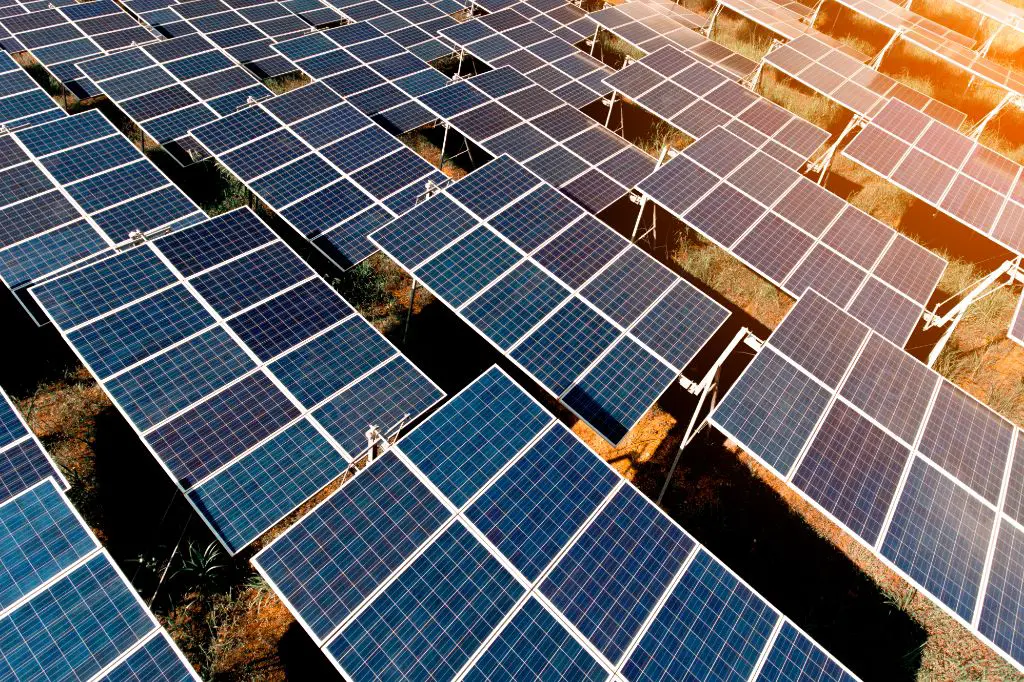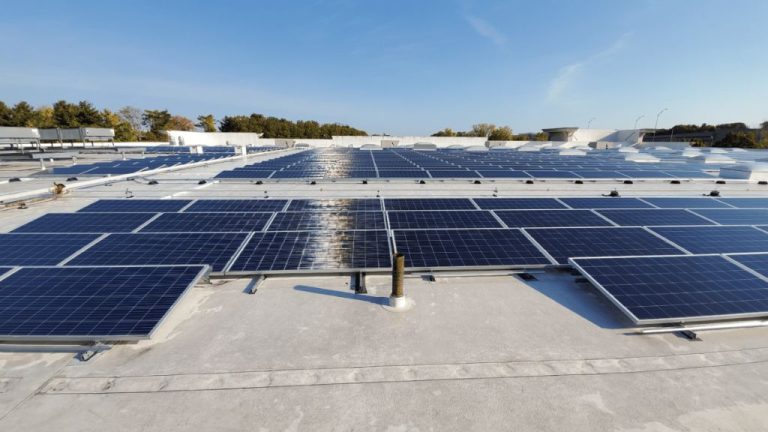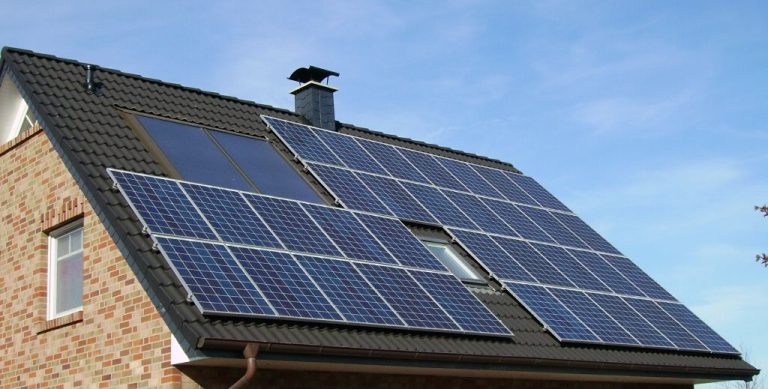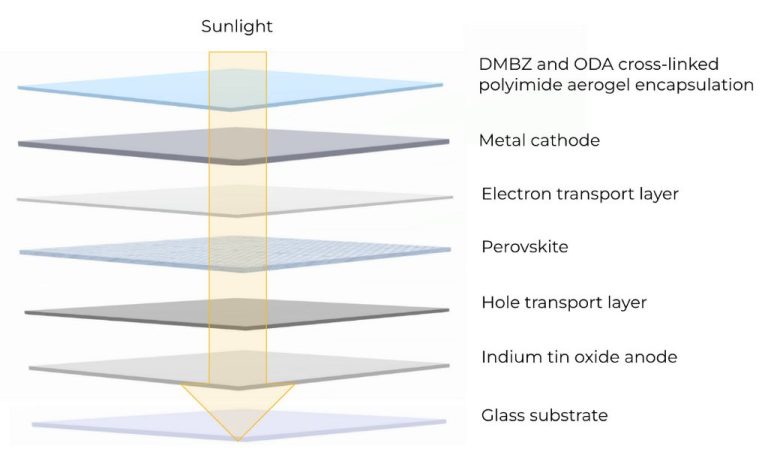What Is The Benefits Of Solar Energy?
Solar energy is energy from the sun that is converted into electricity or heat. Solar energy is a renewable energy source that has many benefits compared to traditional energy sources like coal, oil and natural gas. Some of the main benefits of solar energy include reducing electricity bills, utilizing an inexhaustible renewable resource, reducing dependence on fossil fuels, improving public health, creating jobs and spurring the economy, low maintenance costs, advancements in solar technology, government tax credits and incentives.
This article will provide an overview of the numerous benefits that come with utilizing solar energy and why it is becoming an increasingly popular energy source worldwide.
Reduces Electricity Bills
Installing solar panels allows homeowners and businesses to generate their own electricity, reducing or even eliminating their electricity bills. Solar panels harness energy from the sun to generate electricity, without any ongoing fuel costs. Once the solar panels are installed, the electricity they produce is free. Any excess electricity that is generated but not immediately used can even be sold back to the utility company through net metering programs.
The more electricity that is generated through the solar panels, the less electricity that needs to be purchased from the utility company. Solar panels can be added incrementally as needed to match the electricity demands of the home or business. On average, solar panels in the U.S. will eliminate 50-90% of electricity bills for a home. Some homes are even able to achieve zero energy status, generating 100% of the electricity they need. For businesses, solar panels can reduce electricity costs by 10-90%, delivering significant savings. Going solar is a smart financial decision that provides immediate savings on electricity bills and excellent return on investment over the 25+ year lifespan of solar panels.
Inexhaustible Renewable Resource
Unlike fossil fuels like coal, oil and natural gas, which are finite resources that will eventually run out, solar energy is a renewable and virtually inexhaustible resource. The amount of solar energy that reaches the Earth’s surface every hour is greater than the amount of energy that the entire human population uses in a year.
The sun has burned for billions of years and will continue to do so for billions more. The amount of solar energy that hits the Earth in a single day is more than enough to provide our energy needs for an entire year. Even if only a tiny fraction of the available solar energy was harnessed, it would be more than enough to meet all of our energy requirements indefinitely without depleting the sun’s energy reserves.
Solar panels can utilize both direct and diffuse sunlight to generate electricity. This means that solar energy can still be collected on cloudy or rainy days. The development of solar technology that can harvest energy from the full light spectrum will further allow us to maximize this inexhaustible energy source.
In addition, solar energy has the potential to be harnessed in any location that receives sunlight. Though some regions receive more annual solar irradiation than others, solar power can be implemented across most of the Earth’s surface. The possibilities of solar are endless since every inch of the planet is illuminated by the sun.
While fossil fuel resources are finite and subject to geopolitical tensions, solar energy is abundant and available all over the world. Tapping into solar would provide energy independence and security for all nations. For these reasons, solar energy is an effectively limitless resource that will never run out.

Reduces Dependence on Fossil Fuels
One of the biggest benefits of solar energy is reducing our dependence on fossil fuels like coal, oil, and natural gas. Fossil fuels are finite resources that will continue becoming more expensive as supplies diminish. Burning fossil fuels also emits greenhouse gases like carbon dioxide that contribute to climate change. By using solar panels to generate electricity instead of fossil fuels, we can preserve these limited resources for future generations while also reducing harmful emissions.
The U.S. Energy Information Administration estimates that fossil fuels supplied about 80% of the nation’s energy consumption as of 2019. This heavy reliance leaves the U.S. vulnerable to price shocks and shortages whenever production declines or global conflicts occur. Increasing domestic solar energy production improves energy security by diversifying the energy supply. Even though solar currently provides just 3% of U.S. electricity generation, that figure is rapidly rising. With supportive policies, solar has the potential to generate over 40% of the nation’s electricity by 2035 and drastically minimize dependence on imported fossil fuels.
Going solar allows homeowners and businesses to control their own electricity production. This insulation from volatile fossil fuel markets provides stability and predictability for energy costs. Once the solar panels are installed, the sun provides free renewable electricity for decades. Avoiding fossil fuels also means avoiding all the environmental damage caused by mining, drilling, transporting, and burning these resources. Overall, solar energy delivers tremendous benefits by reducing fossil fuel dependence and keeping money in local communities rather than sending it overseas to import coal, oil, and gas.
Improves Public Health
Fossil fuels like coal, oil and natural gas produce harmful air pollutants when burned to generate electricity. This includes nitrogen oxides, sulfur dioxide, particulate matter and heavy metals that contribute to smog, acid rain and respiratory diseases. Burning fossil fuels also emits large amounts of carbon dioxide, the primary greenhouse gas contributing to global warming.
In contrast, solar energy generates electricity without emitting air pollutants or greenhouse gases. Widespread adoption of solar power would significantly improve air quality and public health by reducing emissions from coal and natural gas plants. One study estimated that existing solar panels in the U.S. reduce health and environmental costs associated with electricity production by $7 billion per year.
Fossil fuel energy production also generates large volumes of toxic wastewater that can contaminate drinking water supplies. Solar panels require no water to operate, eliminating this source of water pollution. Rooftop solar also reduces the need for new centralized power plants that impact local water resources. The transition to clean solar power protects our air, water and overall public health.
Creates Jobs and Spurs the Economy
The solar energy industry is a major source of economic growth and job creation. Installation, manufacturing, sales, and O&M of solar panels require skilled workers across many disciplines including engineering, construction, electronics, and more. Hundreds of thousands of people are employed in solar jobs across the country.
Solar jobs often pay well and provide opportunities for advancement along a career track. These are stable, local jobs that cannot be outsourced. Most solar companies prioritize hiring from the local community. This spurs economic development in towns and cities, providing steady incomes and enabling people to spend money at other local businesses.
The solar supply chain also creates positive economic ripple effects. Companies need to source components like inverters, racking, and wiring domestically. They purchase services from local engineering firms and contractors. Solar project development brings energy infrastructure spending into communities.
In many parts of the country, solar jobs are booming. This is especially true in states that actively promote renewable energy. With supportive policies, companies scale up production and hire more staff. Some states are strategically attracting solar manufacturers to create industrial jobs. The solar industry will continue generating economic and employment benefits as more homes and businesses adopt solar power.
Low Maintenance
One of the biggest advantages of solar energy systems is that they require very little maintenance compared to other energy sources like coal, natural gas, and nuclear power. Once solar panels are installed, they can operate for decades with minimal upkeep or intervention. The panels themselves are extremely durable, designed to withstand exposure, temperature swings, moisture, and other environmental factors with minimal degradation over time. Most solar panels come with 20-25 year warranties.
Unlike a coal or nuclear plant, there are no moving parts in solar photovoltaic (PV) panels. There are also no fuels to extract, transport, or burn. Apart from periodic inspection and cleaning of the panels, the only regular maintenance required is inverter replacement after around 10 years. Inverters are relatively inexpensive, straightforward to replace, and some even come with 10-year warranties. This means solar systems provide clean, renewable energy with virtually no ongoing fuel costs or maintenance requirements compared to other energy sources.
The minimal maintenance needs of solar reflect its simplicity and reliability as an energy source. For homeowners and businesses looking to lock in lower energy costs over the long term without having to actively manage their power system, solar delivers this benefit. The low-maintenance nature of solar energy is a major reason why it has become so popular.
Technology Advancements
Solar technology has rapidly advanced in the last few decades, leading to more affordable and efficient solar panels. Some key innovations include:
- Improved solar cell materials like monocrystalline silicon cells that have higher efficiency. Some newer solar panels can convert over 20% of sunlight into electricity.
- Advances in thin-film technology using cadmium telluride (CdTe) rather than silicon, reducing manufacturing costs.
- Increased scale and automation in manufacturing, bringing down solar panel prices.
- New solar tracking systems that allow panels to follow the sun for maximum energy capture.
- Emerging perovskite solar cells that are inexpensive and easy to manufacture.
- Thermal energy storage systems that allow solar heat to be stored for later use.
- More durable solar panels with 30+ year lifespans.
On the energy storage front, improvements in batteries and alternative storage methods allow for better utilization of solar power when the sun isn’t shining. Some key developments include:
- Lithium-ion batteries that are long-lasting and have high efficiency.
- Flow batteries that can store large amounts of energy.
- Innovations in using hydrogen as an energy storage medium for solar power.
- Pumped hydro storage that uses water reservoirs and gravity for large scale solar storage.
- Thermal storage systems that use molten salt to store heat energy.
These ongoing technology improvements continue to boost solar’s competitiveness and expand its applications. The future looks bright for even cheaper and more efficient solar energy.
Government Tax Credits and Incentives
The government provides several incentives, tax credits, and rebates to make it more affordable for homeowners and businesses to install solar panel systems. Here are some of the current federal and state incentives available in the United States for solar installations:
Federal Solar Tax Credit – There is currently a 26% federal solar tax credit available for both residential and commercial solar installations. This tax credit reduces your federal income taxes by 26% of the cost of the solar system.
State Rebates and Tax Credits – Many U.S. states offer additional rebates, grants, and tax credits for solar installations. These incentives can reduce the cost by thousands of dollars. California, New York, Florida, Massachusetts and New Jersey are some states with the highest rebates.
Solar Renewable Energy Certificates (SRECs) – SRECs are certificates that solar panel owners earn for every 1,000 kWh of electricity they produce. SRECs can be sold on the open market to utility companies who are required to meet renewable portfolio standards. Selling SRECs provides added income from your solar panels.
Net Metering – Net metering allows you to get credit from your utility company for any excess electricity your solar panels generate during the day that gets fed back into the grid. This credit offsets your electricity usage at night when your solar system isn’t producing.
Taking advantage of federal, state, and local incentives can reduce the payback period for residential solar installations by 25-50%. Do your research to find all available incentives and rebates in your area to maximize your solar savings.
Conclusion
In conclusion, solar energy has numerous important benefits that make it a wise investment for homes and businesses. Solar panels can dramatically reduce electricity bills by generating power on-site. Solar energy is also an inexhaustible renewable resource that will be available as long as the sun shines. By switching to solar, we reduce dependence on polluting fossil fuels, improve public health, and create jobs and economic growth. Solar panels also require little maintenance and costs continue to fall as the technology rapidly advances. With generous government incentives and tax credits, there has never been a better time to go solar. In summary, solar energy provides clean, renewable power that saves money, spurs the economy, and helps protect the environment.






